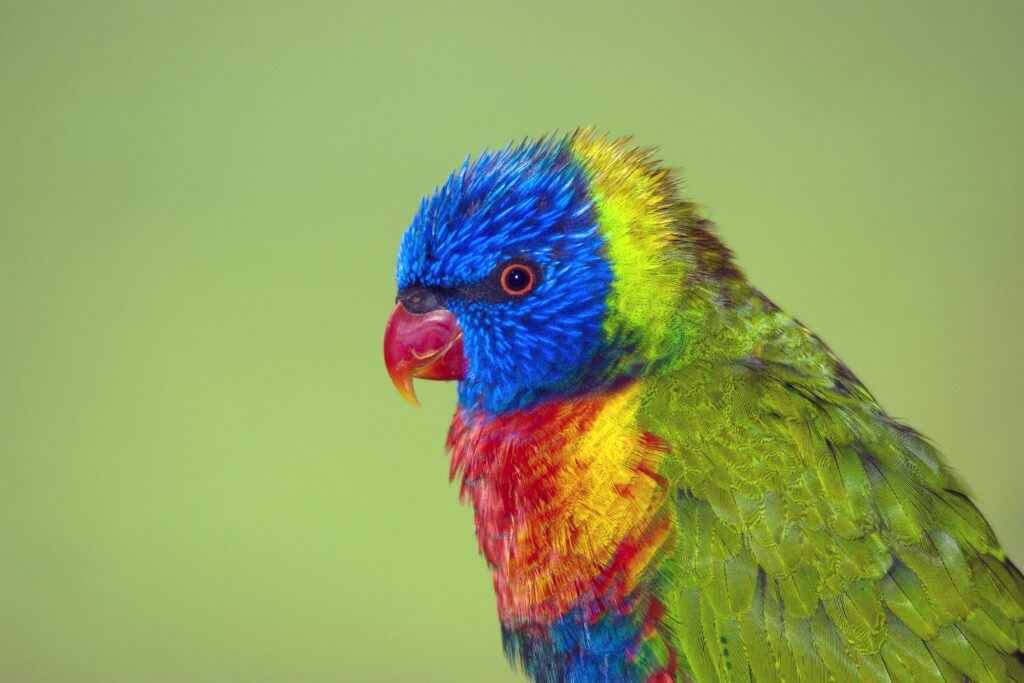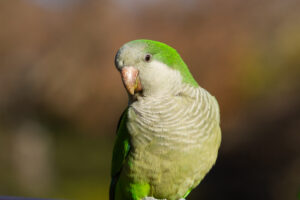Introduction
When it comes to bringing a sun conure into your home, understanding their sun conure lifespan is crucial for providing proper long-term care. These vibrant, social parrots have captured the hearts of bird enthusiasts across the United States, but unfortunately, misinformation about their sun conure life expectancy continues to circulate.
As responsible pet owners, we need to separate fact from fiction regarding the average lifespan of a sun conure. These beautiful birds deserve our commitment throughout their entire lives, which may be much longer than some people realize. Today, we’re diving deep into the most persistent myths about sun conure lifespan and revealing the truth behind these misconceptions.
Whether you’re a current sun conure owner or considering adding one of these colorful companions to your family, understanding the reality of their sun conure lifespan will help you provide the best possible care. Let’s bust these myths together and explore what really impacts the lifespan of a sun conure parrot.
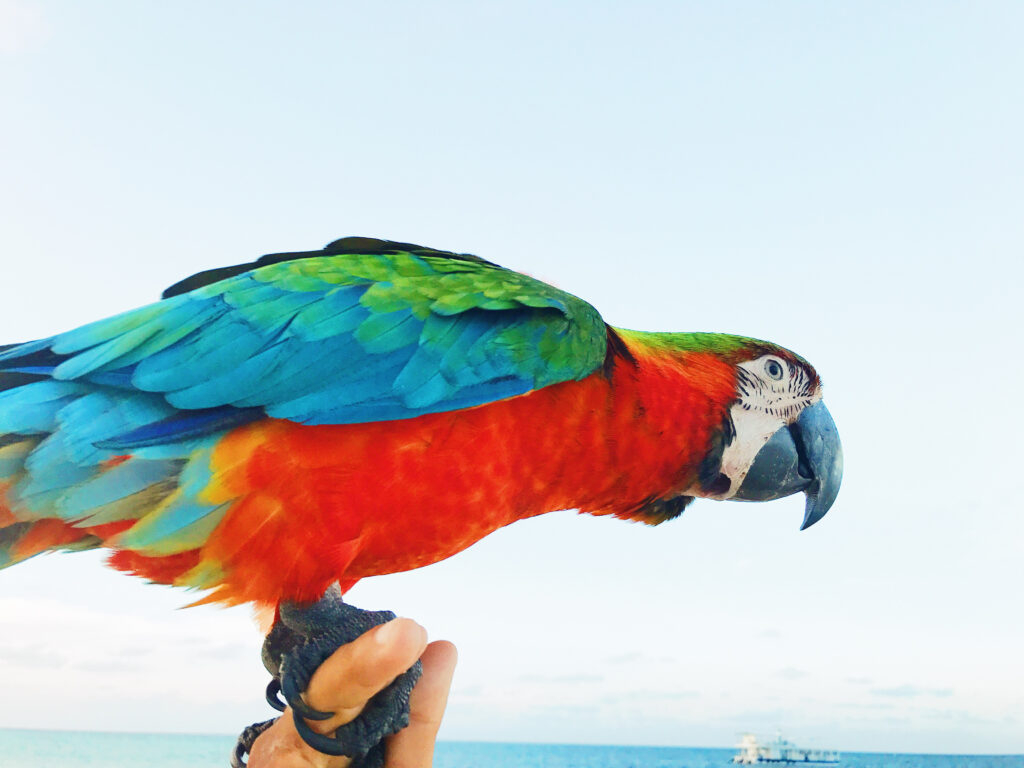
Myth #1: “Sun Conures Only Live for 10 Years”
One of the most common misconceptions about sun conure lifespan is that these birds only live for about a decade. This myth likely originated from comparisons to smaller pet birds or from experiences with sun conures who didn’t receive optimal care.
The Truth About Sun Conure Life Expectancy
In reality, the average lifespan of a sun conure is significantly longer. With proper care, a pet sun conure lifespan typically ranges from 20 to 30 years. This makes the commitment to a sun conure similar to that of raising a child through to adulthood—these are long-term companions that require decades of dedication.
Many sun conure owners are surprised to learn that their vibrant feathered friends may be with them for a quarter-century or more. Understanding the true sun conure life expectancy is essential when deciding if this colorful parrot species is the right pet for your household.
Documented Cases of Long-Living Sun Conures
There have been numerous documented cases of sun conures living well into their late 20s and even early 30s. While the average lifespan of a sun conure might be quoted at 20-25 years, many well-cared-for birds exceed these numbers.
For example, the longest living sun conure on record reportedly reached 34 years of age, though this is exceptional rather than typical. Still, it demonstrates that the sun conure lifespan potential is much greater than the commonly circulated “decade” myth suggests.
Myth #2: “Indoor and Outdoor Sun Conures Have the Same Lifespan”
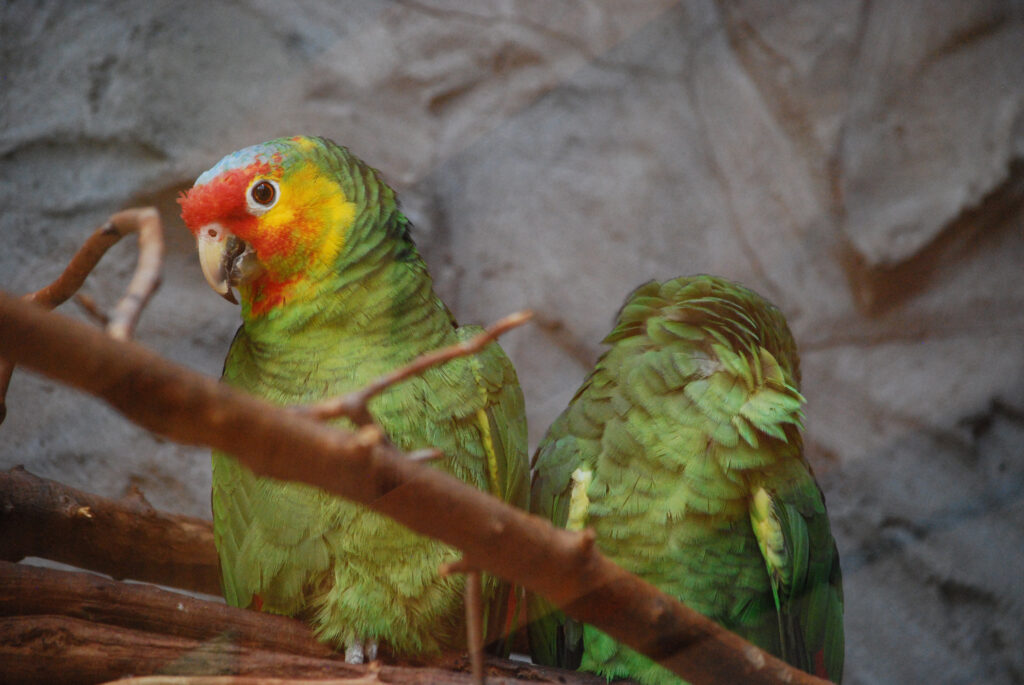
Another widespread misconception is that the environment in which a sun conure lives doesn’t significantly impact their lifespan. This couldn’t be further from the truth.
Indoor vs. Outdoor Living Environments
The sun conure lifespan in captivity is heavily influenced by whether they live primarily indoors or outdoors. A sun conure lifespan indoors is typically much longer than that of birds kept in outdoor aviaries, especially in regions with variable climates.
Indoor sun conures are protected from:
- Extreme temperature fluctuations
- Predators
- Parasites and wild bird diseases
- Exposure to toxic plants or substances
- Escape risks
While wild sun conures have evolved to withstand certain environmental conditions in their native South American habitats, pet sun conure lifespan is optimized in controlled indoor settings where owners can regulate temperature, humidity, and exposure to potential hazards.
Temperature Considerations for Sun Conure Health
Sun conures originate from tropical regions and have specific temperature requirements that directly impact their health and sun conure lifespan. These birds thrive in environments with temperatures between 70°F and 80°F (21°C to 27°C).
Prolonged exposure to temperatures below 65°F (18°C) can stress a sun conure’s system and potentially lead to illness, while temperatures above 85°F (29°C) may cause heat stress. Both extremes can shorten a sun conure’s life expectancy if experienced regularly or for extended periods.
When considering factors affecting sun conure lifespan, maintaining appropriate environmental conditions ranks among the most important. This is why most experts recommend keeping sun conures as indoor pets with carefully controlled living conditions to maximize their sun conure lifespan care.
Myth #3: “Diet Doesn’t Significantly Impact Sun Conure Lifespan”
Perhaps one of the most dangerous myths surrounding sun conure lifespan is the belief that diet isn’t a critical factor in determining how long sun conures live. This misconception has unfortunately led to shortened lives for many of these beautiful birds.
The Crucial Role of Nutrition
Nutrition is arguably the single most important factor in determining the lifespan of a sun conure parrot. Poor diet is the root cause of many health issues that can dramatically shorten a sun conure’s life expectancy.
A balanced diet for sun conures should include:
- High-quality pellet mix (about 60-70% of diet)
- Fresh fruits and vegetables (about 20-30%)
- Limited seeds and nuts (about 10%, primarily as treats)
- Occasional protein sources like cooked egg or small amounts of cooked chicken
Many sun conure owners make the mistake of feeding a seed-only diet, which lacks essential nutrients and can lead to obesity, fatty liver disease, and vitamin deficiencies. These conditions directly impact how long can a sun conure live by causing preventable health complications.
Common Dietary Mistakes That Shorten Sun Conure Lifespan
Several dietary practices can negatively impact sun conure lifespan:
- Seed-heavy diets: While seeds are calorie-dense and often preferred by sun conures, they lack essential nutrients and can lead to malnutrition despite the bird appearing well-fed.
- Avocado and chocolate: These common household foods are toxic to sun conures and can be fatal even in small amounts.
- Insufficient fresh foods: Without fresh fruits and vegetables, sun conures miss out on vital vitamins and minerals.
- Lack of calcium: Calcium deficiency is common in captive parrots and can lead to weakened bones, egg-binding in females, and other serious health issues.
- Excessive treats: Too many fatty or sugary treats can lead to obesity and related health problems that shorten sun conure lifespan.
By addressing these dietary concerns, you can significantly increase your pet sun conure lifespan and ensure they remain healthy throughout their many years with you.
Myth #4: “Sun Conures Don’t Need Regular Veterinary Care to Live Long Lives”
Another dangerous myth is that sun conures, being relatively hardy birds, don’t require routine veterinary care to achieve their full sun conure lifespan potential. This couldn’t be further from the truth.
The Importance of Avian Veterinary Care
Regular check-ups with an avian veterinarian are essential for maximizing sun conure life expectancy. Unlike cats and dogs, birds like sun conures are masters at hiding illness—an evolutionary trait that helps them avoid appearing vulnerable in the wild.
By the time a sun conure shows obvious signs of illness, the condition has often progressed significantly. This is why annual (or ideally, semi-annual) veterinary examinations are crucial for:
- Early detection of health issues
- Proper grooming of beaks and nails
- Weight monitoring
- Nutritional guidance
- Disease prevention
Birds that receive regular preventive care typically enjoy a longer sun conure lifespan than those who only see a veterinarian in emergencies. This proactive approach to health care is one of the most effective ways to increase sun conure lifespan.
Signs of Illness That Impact Sun Conure Lifespan
Knowing the warning signs of illness can help you seek timely veterinary care and preserve your bird’s sun conure lifespan:
- Changes in droppings (color, consistency, frequency)
- Decreased appetite or water consumption
- Fluffed-up appearance for extended periods
- Lethargy or decreased activity
- Changes in vocalization
- Discharge from eyes or nostrils
- Difficulty breathing
- Weight loss
- Changes in behavior or temperament
Early intervention for any of these symptoms can be the difference between a short-lived health scare and a serious condition that impacts your bird’s sun conure life expectancy.
Additional Factors Affecting Sun Conure Lifespan
Beyond the myths we’ve busted, several other factors play significant roles in determining how long sun conures live. Understanding these can help you provide optimal care and maximize your companion’s years with you.
Genetic Factors and Breeding
While we can’t control genetics, it’s worth noting that the sun conure average lifespan can be influenced by breeding practices. Birds from reputable breeders who focus on health and genetic diversity tend to have fewer hereditary issues and may enjoy longer lives.
When selecting a sun conure, investigating the breeder’s reputation and practices can provide insight into potential genetic factors affecting sun conure lifespan. Avoiding birds from operations that prioritize profit over health can help ensure you start with a bird that has the best chance at a long life.
Exercise and Mental Stimulation
Physical activity and mental engagement are crucial for maintaining a healthy sun conure lifespan. These active, intelligent birds need regular opportunities to:
- Fly (in a safe, supervised environment)
- Climb
- Play with toys
- Forage for food
- Interact with their human companions
- Learn new tricks and behaviors
Sedentary birds often develop obesity, cardiovascular issues, and behavioral problems that can impact their sun conure life expectancy. Providing at least 3-4 hours outside the cage daily for supervised activity is recommended for optimal health and longevity.
Cage Size and Setup
The size and configuration of a sun conure’s primary living space significantly impacts their sun conure lifespan care. Minimum recommended cage dimensions are 24″ W × 24″ D × 30″ H (61 × 61 × 76 cm), though larger is always better.
Beyond size, the cage should include:
- Multiple perches of varying diameters and materials
- Food and water stations placed to avoid contamination
- Appropriate toys that encourage natural behaviors
- Clean substrate that’s changed regularly
- Placement in a room with appropriate light, temperature, and humidity
Cramped, barren, or poorly maintained living quarters create stress and can lead to both physical and psychological issues that shorten a pet sun conure lifespan.
How to Increase Sun Conure Lifespan: Best Practices
Now that we’ve addressed the myths and factors affecting sun conure lifespan, let’s focus on actionable steps you can take to help your feathered friend live a long, healthy life.
Optimal Nutrition Strategies
To maximize your bird’s sun conure life expectancy, implement these nutritional best practices:
- Transition to high-quality pellets: If your bird is currently on a seed-based diet, gradually transition to a nutritionally complete pellet mix designed specifically for conures.
- Rotate fresh foods: Offer a variety of fresh vegetables and fruits daily, focusing on leafy greens, colorful vegetables, and moderate amounts of fruit.
- Provide foraging opportunities: Use puzzle toys and foraging devices to make your bird work for some of its food, mimicking natural behaviors and providing mental stimulation.
- Monitor weight regularly: Use a small digital scale to keep track of your bird’s weight, as changes can indicate health issues before other symptoms appear.
- Ensure clean, fresh water: Change water at least once daily and clean containers to prevent bacterial growth.
These nutrition strategies directly address one of the most important factors affecting sun conure lifespan and can add years to your bird’s life.
Environmental Enrichment
Creating an enriching environment is crucial for both physical and psychological health, which together determine how long can a sun conure live. Consider these enrichment strategies:
- Rotate toys regularly: Introduce new toys and remove old ones on a rotation to maintain interest and prevent boredom.
- Provide varied perching options: Include natural branches, rope perches, and varying diameters to exercise feet and prevent arthritis.
- Create climbing opportunities: Ladder bridges, rope climbs, and play gyms provide exercise options that support physical health.
- Establish a socialization routine: Regular, positive interaction with human family members fulfills the social needs of these highly gregarious birds.
- Consider a companion: While not necessary, some sun conures benefit from having another bird companion, though introductions must be done carefully and gradually.
Environmental enrichment addresses the psychological needs of sun conures, preventing stress-related behaviors and health issues that can shorten their sun conure lifespan.
Stress Reduction Techniques
Chronic stress can significantly impact sun conure lifespan in captivity. Implement these stress-reduction strategies:
- Maintain a consistent routine: Regular schedules for feeding, out-of-cage time, and sleep help sun conures feel secure.
- Provide adequate sleep: Ensure 10-12 hours of uninterrupted darkness and quiet for proper rest.
- Create safe spaces: Offer hideaways or covered areas where your bird can retreat when feeling overwhelmed.
- Monitor household noise levels: Avoid sudden loud noises, and provide warning before using vacuum cleaners or other startling appliances.
- Introduce new experiences gradually: Whether it’s a new toy, food, or person, allow your sun conure to approach new things at its own pace.
Stress management directly influences how long do sun conures live by preventing a host of stress-related health issues and behaviors.
Sun Conure Lifespan Through Different Life Stages
Understanding how to care for your sun conure through different life stages is essential for supporting their full sun conure lifespan. Each stage has unique needs and considerations.
Juvenile Care (Under 1 Year)
Proper care during a sun conure’s first year lays the foundation for a healthy sun conure life expectancy:
- Focus on socialization and positive handling experiences
- Begin training basic commands and step-up behavior
- Establish healthy eating habits from the start
- Schedule more frequent veterinary check-ups (every 3-4 months)
- Monitor growth and development closely
- Begin establishing a consistent daily routine
Many juvenile sun conures go through a period of testing boundaries, similar to a human toddler. Consistent, gentle guidance during this stage helps establish behavioral patterns that support a stress-free, healthy lifestyle throughout their sun conure lifespan.
Adult Care (1-15 Years)
During their prime adult years, sun conures are at their most active and engaging. To support their sun conure lifespan care during this extended period:
- Maintain consistent exercise routines
- Provide challenging mental stimulation
- Monitor for early signs of reproductive behaviors in females
- Continue regular veterinary check-ups (every 6-12 months)
- Watch for any changes in weight, appetite, or behavior
- Adjust diet as needed based on activity level
This is typically when sun conures are at their behavioral best, having matured beyond the testing phase of youth but not yet experiencing age-related changes.
Senior Care (15+ Years)
As your sun conure enters their senior years, adjustments to their care will help support their continued health and maximize their sun conure lifespan:
- Increase veterinary visits to twice yearly
- Consider more frequent bloodwork to catch age-related issues early
- Modify cage setup to accommodate potentially arthritic joints
- Adjust diet for changing metabolic needs
- Provide extra warmth as older birds may struggle with temperature regulation
- Monitor weight more frequently, as changes can happen more quickly
- Be attentive to dental/beak health, which can affect eating
Many sun conures remain active and engaged well into their senior years, though they may require some accommodation to support their changing bodies. With proper senior care, many sun conures can reach or exceed the upper ranges of sun conure average lifespan.
Understanding the Sun Conure Age Limit
When discussing sun conure age limit, it’s important to note that there isn’t a hard ceiling on how long these birds can live. While the average sun conure lifespan typically ranges from 20-30 years, individual birds may fall short of or exceed these numbers based on the factors we’ve discussed.
The concept of a sun conure age limit is better understood as a probability range rather than a fixed number. The probability of a sun conure living beyond 30 years decreases significantly, but it isn’t impossible. Similarly, sun conures that receive suboptimal care throughout their lives may never reach the average sun conure life expectancy of 20+ years.
Rather than focusing on a specific sun conure age limit, responsible owners should instead concentrate on providing the best possible care at every life stage. This approach gives each individual bird the best chance of reaching their full sun conure lifespan potential, whatever that may be.
Conclusion: Committing to the Full Sun Conure Lifespan
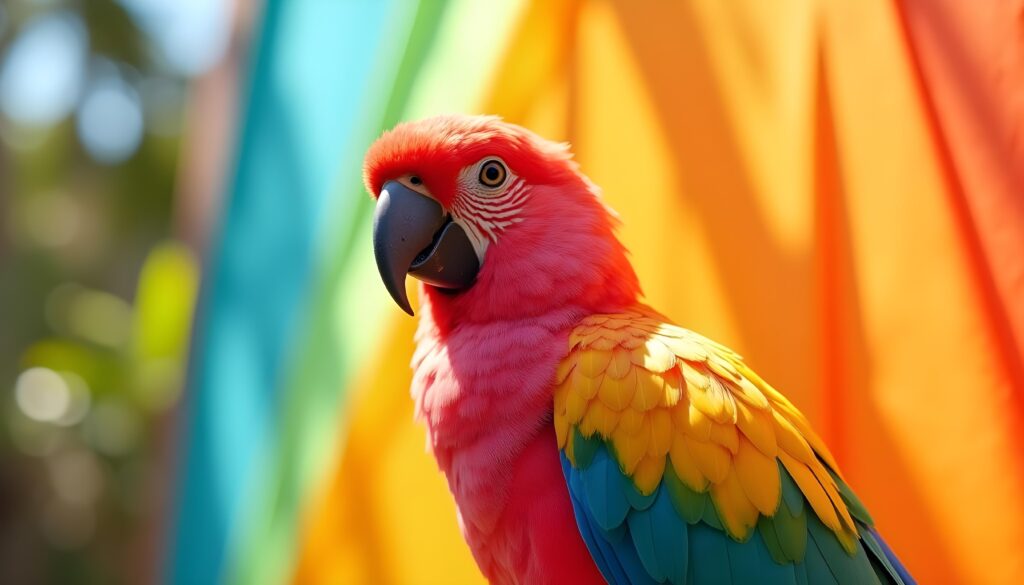
Bringing a sun conure into your home means committing to potentially decades of care. Understanding the true sun conure lifespan of 20-30 years helps ensure you’re prepared for this long-term responsibility.
By busting the common myths surrounding how long do sun conures live and implementing the best practices we’ve discussed, you can help your vibrant companion reach their full sun conure life expectancy potential. These intelligent, social parrots deserve nothing less than a lifelong commitment to their health and happiness.
Remember that every aspect of care—from diet and housing to veterinary attention and mental stimulation—plays a crucial role in determining your bird’s sun conure lifespan. By addressing each of these areas thoughtfully and consistently, you’re providing your feathered friend with the best possible chance at a long, healthy life.
For more information on proper care for your sun conure and other pets, explore our other helpful guides at PetsPump. Our comprehensive guide to parrot nutrition and creating the ideal bird environment are excellent next steps in your journey to becoming the best sun conure owner possible.
FAQs About Sun Conure Lifespan
How long do sun conures typically live as pets?
With proper care, the average lifespan of a sun conure in captivity ranges from 20 to 30 years, with some exceptional cases living into their early 30s.
What is the biggest factor affecting sun conure lifespan?
Diet is generally considered the most significant factor affecting sun conure lifespan, followed closely by preventive veterinary care and appropriate living conditions.
Can a sun conure live longer than 30 years?
While uncommon, there have been documented cases of sun conures living beyond 30 years. The longest living sun conure on record reportedly reached 34 years.
How can I tell my sun conure’s age?
Unless you obtain your sun conure as a baby or with documentation, determining exact age can be challenging. An avian veterinarian may be able to provide an estimate based on physical examination and behavior.
Do male and female sun conures have different lifespans?
There is no significant difference in sun conure life expectancy between males and females, though females may face additional health risks related to egg-laying if they become chronically reproductive.
What are signs my sun conure is entering old age?
Signs of aging in sun conures may include decreased activity, changes in sleep patterns, duller feathers after molts, weight loss despite normal eating, and decreased vocalization.
Does breeding affect a female sun conure’s lifespan?
Excessive egg-laying can deplete a female’s calcium stores and potentially shorten her sun conure lifespan. Managing reproductive behavior is important for female sun conures’ long-term health.
What’s the best age to adopt a sun conure for the longest relationship?
Many experts recommend adopting a young sun conure (6 months to 2 years) that has been weaned and socialized. This gives you nearly the full sun conure lifespan together while avoiding the intensive care requirements of baby birds.


